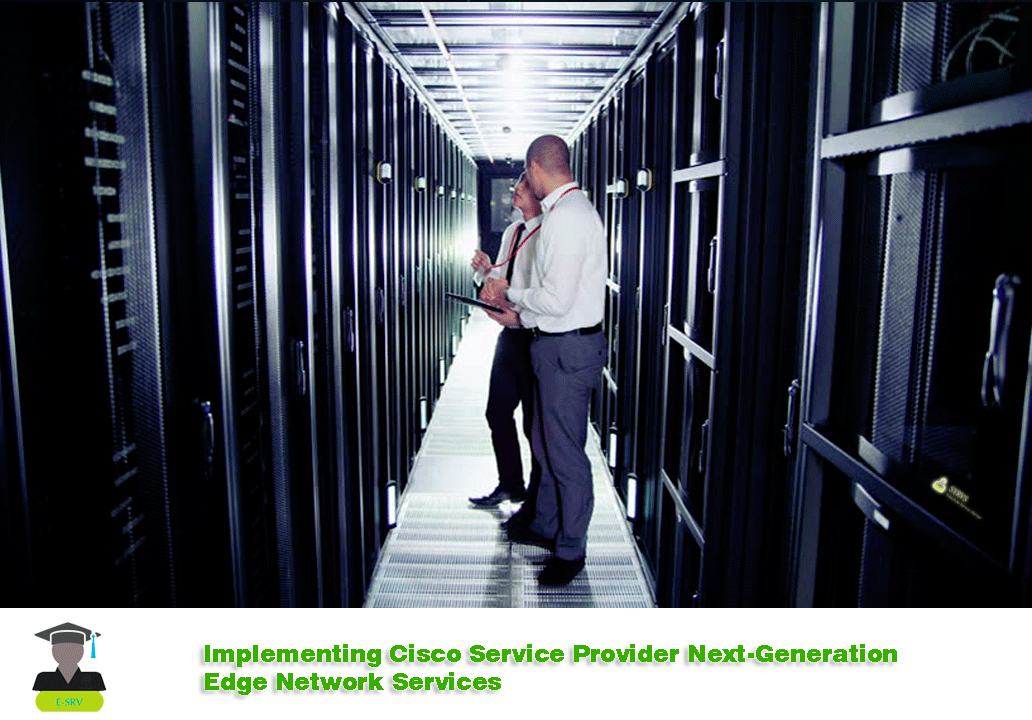The knowledge and skills that a learner must have before attending this course are as follows:
- Intermediate to advanced knowledge of Cisco IOS, IOS XE, and IOS XR Software configuration.
- Skills and knowledge equivalent to those learned in these courses:
Deploying Cisco Service Provider Network Routing [SPRoute]
Deploying Cisco Service Provider Advanced Network Routing [SPADVRoute]
Implementing Cisco Service Provider Next-Generation Core Network Services [SPCore]
This course is a 60 hours course that is designed to help students prepare for the Cisco CCNP SP certification. The SPEDGE course is a component of the CCNP SP curriculum.
The SPEDGE course is designed to provide service provider professionals with information on the use of service provider VPN solutions. The goal is to train professionals to enable service provider point of presence to provide Layer 2 and Layer 3 VPNs. The SPEDGE training reinforces the instruction by providing students with hands-on labs to ensure they thoroughly understand how to implement VPNs within their networks.
The course also includes classroom activities with remote labs that are useful to gain practical skills on deploying Cisco IOS/IOS XE and Cisco IOS XR features to operate and support service provider network.
Upon completing this course, you will be able to:
- Describe the VPN technologies that are used in the service provider environment and the MPLS VPN peer-to-peer architecture
- Describe the implementation steps that are needed to provide MPLS Layer 3 VPN service in the service provider network
- Describe how the MPLS Layer 3 VPN model can be used to implement managed services and Internet access
- Describe MPLS solutions for IPv6 and inter-domain communication.
- Describe Layer 2 VPNs and Ethernet services
Module 1: VPN Technologies
Lesson 1: Introducing VPNs
Lesson 2: Introducing MPLS VPNs
Module 2: MPLS Layer 3 VPNs
Lesson 1: Implementing MPLS Layer 3 VPN Backbones
Lesson 2: Deploying Basic Routing in MPLS VPNs
Lesson 3: Deploying OSPF and BGP in MPLS VPNs
Module 3: Special Connectivity in MPLS Layer 3 VPNs
Lesson 1: Implementing Special Connectivity in MPLS VPNs
Lesson 2: Implementing Internet Access in MPLS VPNs
Module 4: MPLS IPv6 and Interdomain Solutions
Lesson 1: Deploying IPv6 in MPLS Environment
Lesson 2: Introducing MPLS Interdomain Solutions
Module 5: Layer 2 VPNs
Lesson 1: Introducing Layer 2 VPNs
Lesson 2: Implementing AToM
Lesson 3: Implementing VPLS
Lesson 4: Enhancing L2VPN Scalability

